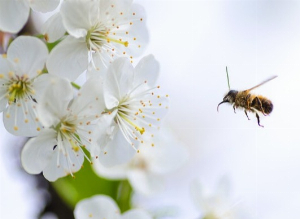Benefits of using a humidifier
Published 8 Oct 2018

Humidifiers add moisture to the air, which can benefit people with respiratory symptoms or dry skin.

Dryness and humidity
By adding moisture to the air, humidifiers may be beneficial for several medical conditions.
Dry air can cause moisture to evaporate from the skin and respiratory symptoms to worsen over time. Adding moisture to the air with a humidifier can counteract these problems.
Humidifiers can help people who experience:
dry skin
irritated eyes
dryness in the throat or airways
allergies
frequent coughs
bloody noses
sinus headaches
cracked lips
Six humidifier uses and their benefits
Some people experience respiratory symptoms in the summer months, when the weather is hot, and the air contains more allergens. Air conditioners and fans can circulate dry air through the room, and air conditioners remove any moisture from the air. A humidifier may be beneficial during this season.
However, people are more likely to benefit from a humidifier in the cold months, when cold air dries out the lungs, nose, and lips. Also, some types of central heating can dry out the air indoors.
Benefits of a humidifier may include:
1. Preventing influenza
Authors of one study noted that humidifiers might reduce the risk of catching the flu. After adding the influenza virus to the air with a simulated cough, researchers found that humidity levels above 40 percent rapidly deactivated virus particles, making them much less likely to be infectious.
2. Making a cough more productive
Dry air can cause a person to have a dry, unproductive cough. Adding humidity to the air can get more moisture into the airways, which can make a cough more productive. A productive cough releases trapped or sticky phlegm.
3. Reducing snoring
Increasing the amount of moisture in the air can also reduce snoring. If the air is dry, a person's airways are less likely to be sufficiently lubricated, which can make snoring worse.
Adding humidity to the air by running a humidifier at night may help to relieve some symptoms.
4. Keeping the skin and hair moist
Some people notice that their skin, lips, and hair become dry and fragile in the winter.
Many types of heating units pump hot, dry air through the house or office, which can make the skin dry, itchy, or flaky. Cold air outside can also dry out the skin.
Using a humidifier to add moisture to the indoor air may help to reduce the occurrence of dry, cracked skin.
5. Reducing allergy and asthma symptoms
Research suggests that humidifiers can reduce asthma symptoms.
Using a humidifier correctly can also be a good way to reduce allergy and asthma symptoms.
People with dry sinuses or airways who are prone to allergic reactions may find that a humidifier relieves their issues.
6. Benefits for the home
Moisture from a humidifier can be helpful around the home. Any moisture-loving houseplants may become more vibrant, and wood floors or furniture may last longer. Humidity can also help to prevent wallpaper from cracking and static electricity from building up.
Humid air can also feel warmer than dry air, which could help a person to save money on utility bills in winter months.
Types of humidifiers
While most humidifiers have the same basic function, to add moisture to the air, many types are available:
Steam vaporisers: These use electricity to create steam, which cools before it leaves the unit. However, there is a risk of burning the skin, and people should avoid using steam vaporizers around children.
Ultrasonic humidifiers: Instead of electricity, these units use vibrations to vaporize water.
Evaporators: These produce humidity by blowing air past evaporating water.
Impeller humidifiers: These are generally child-friendly and use rotating disks, rather than heat, to vaporize water.
Central humidifiers: A person connects one of these units to the central air conditioning in the home or office to add moisture to the entire space.
Sizes can vary. Console humidifiers are large enough to add moisture to an entire house or office, while personal humidifiers are portable and easy to carry.
Have you tired a humidifier to lesson your asthma or allergy symptoms? Did it help? Which type do you use?
Medical News Today

 Facebook
Facebook Twitter
Twitter



